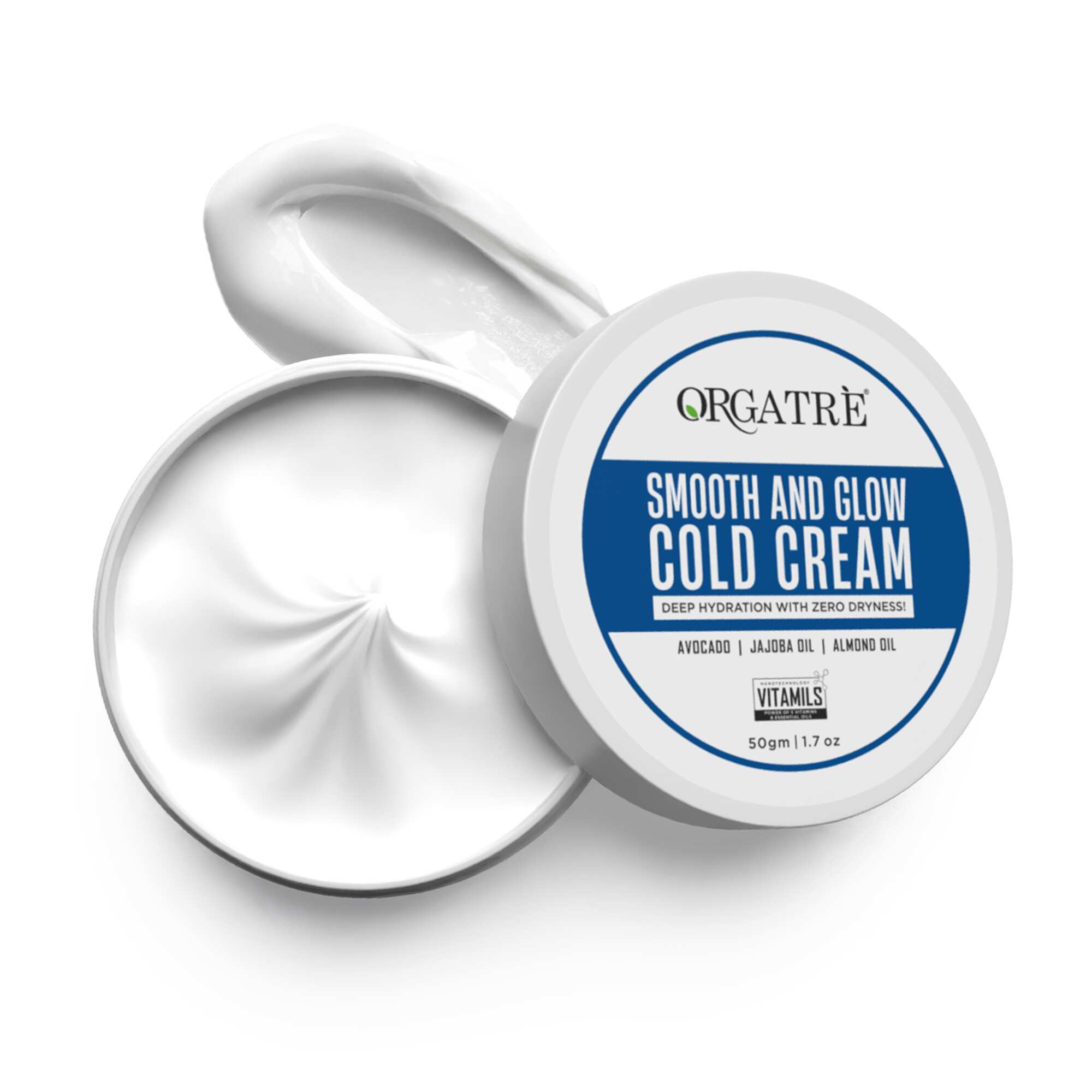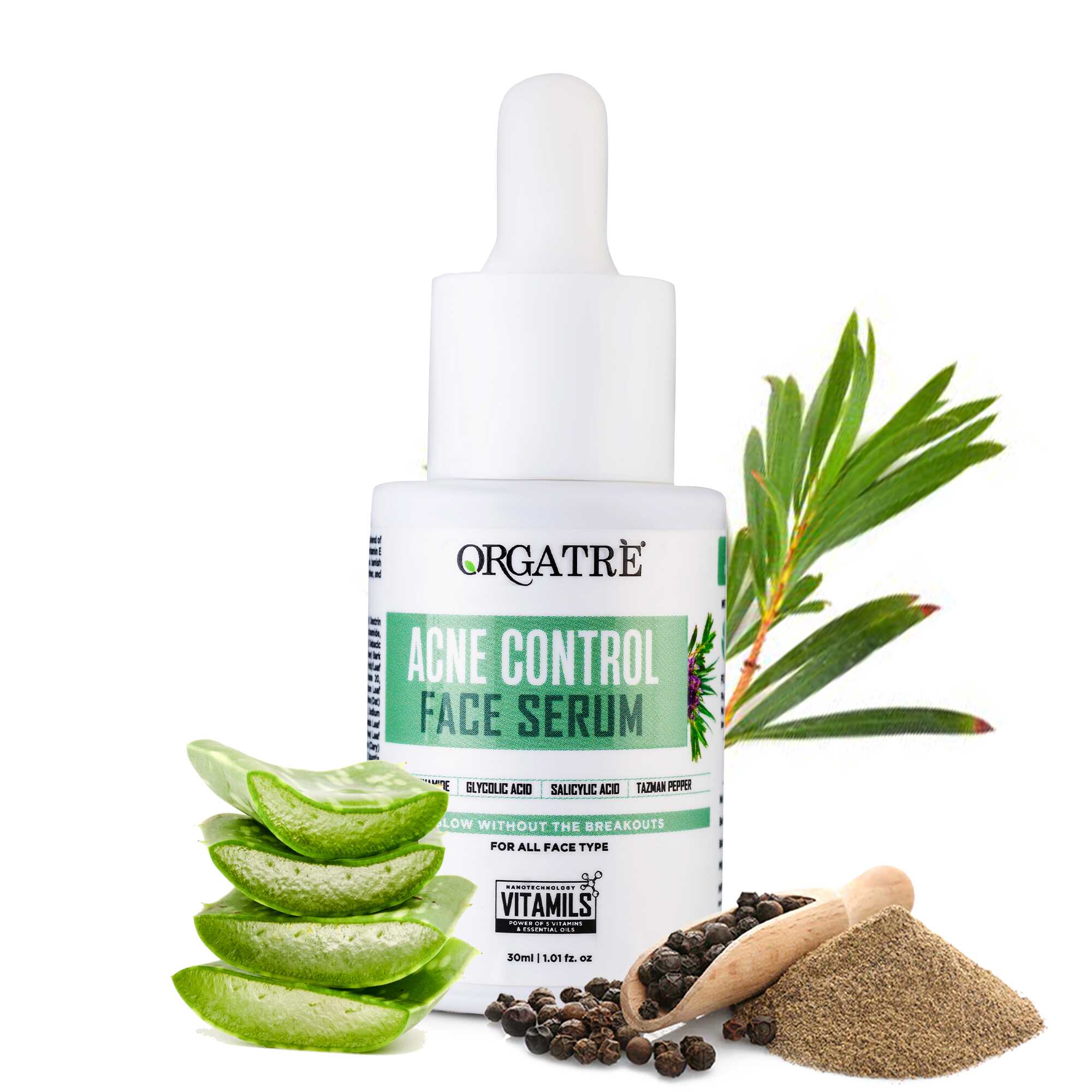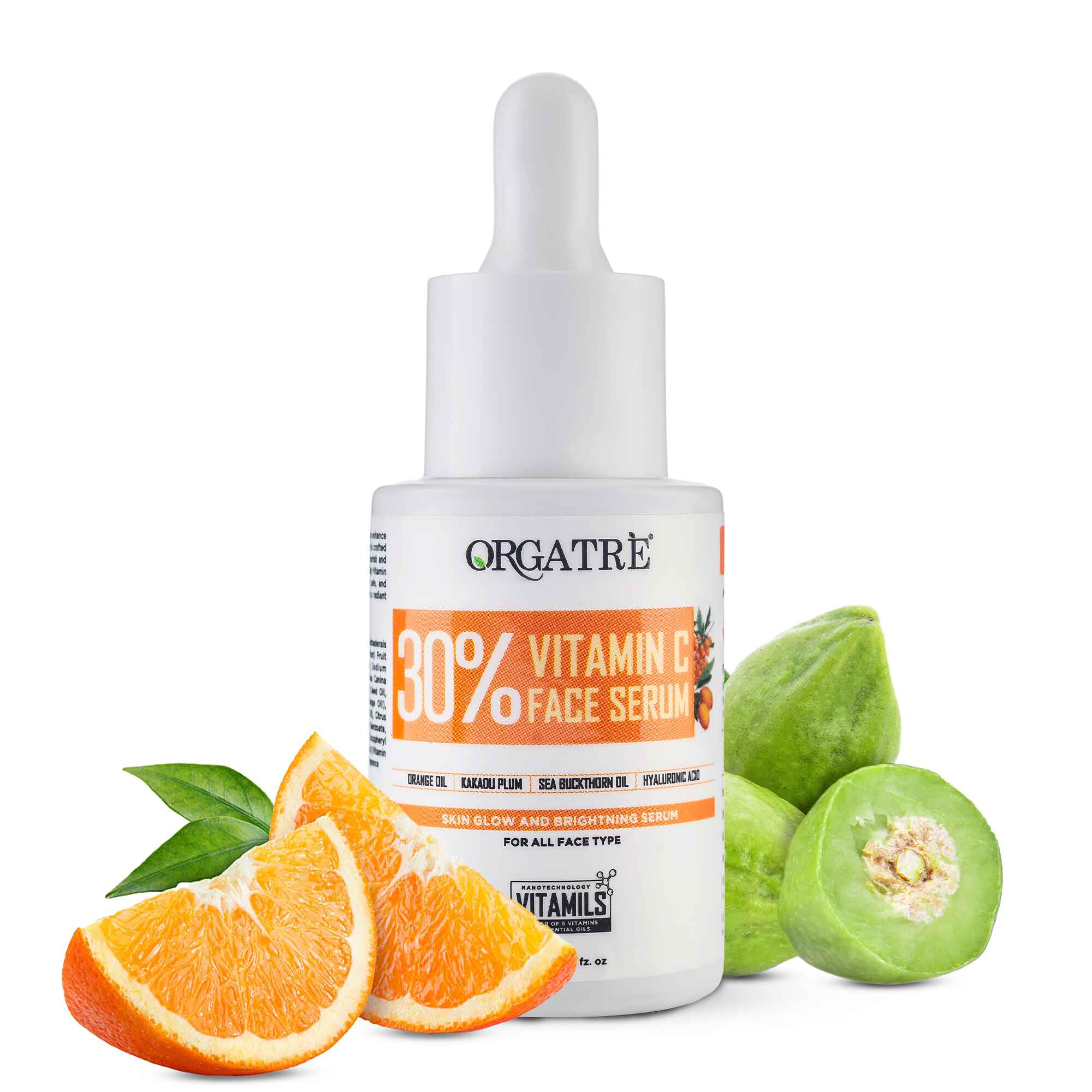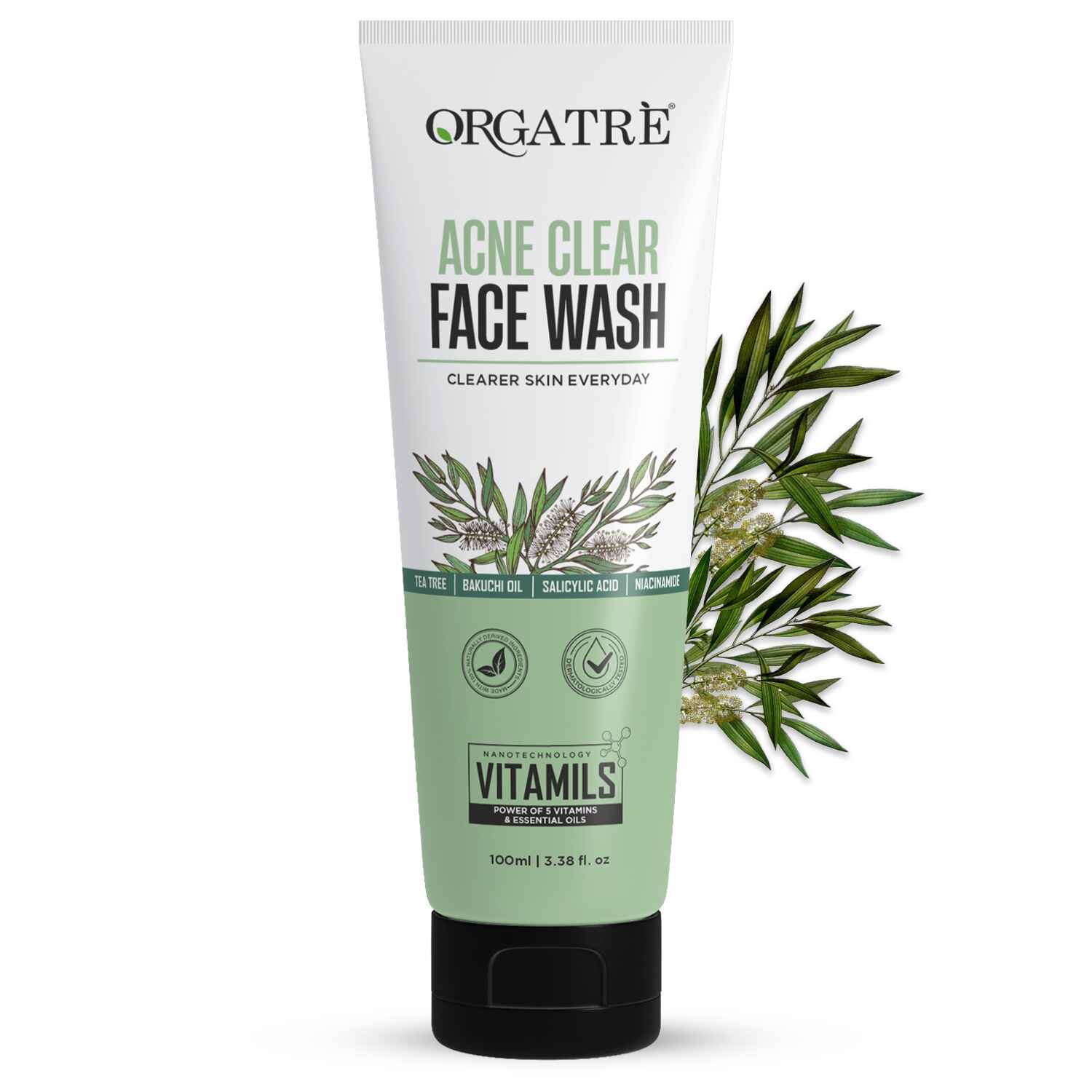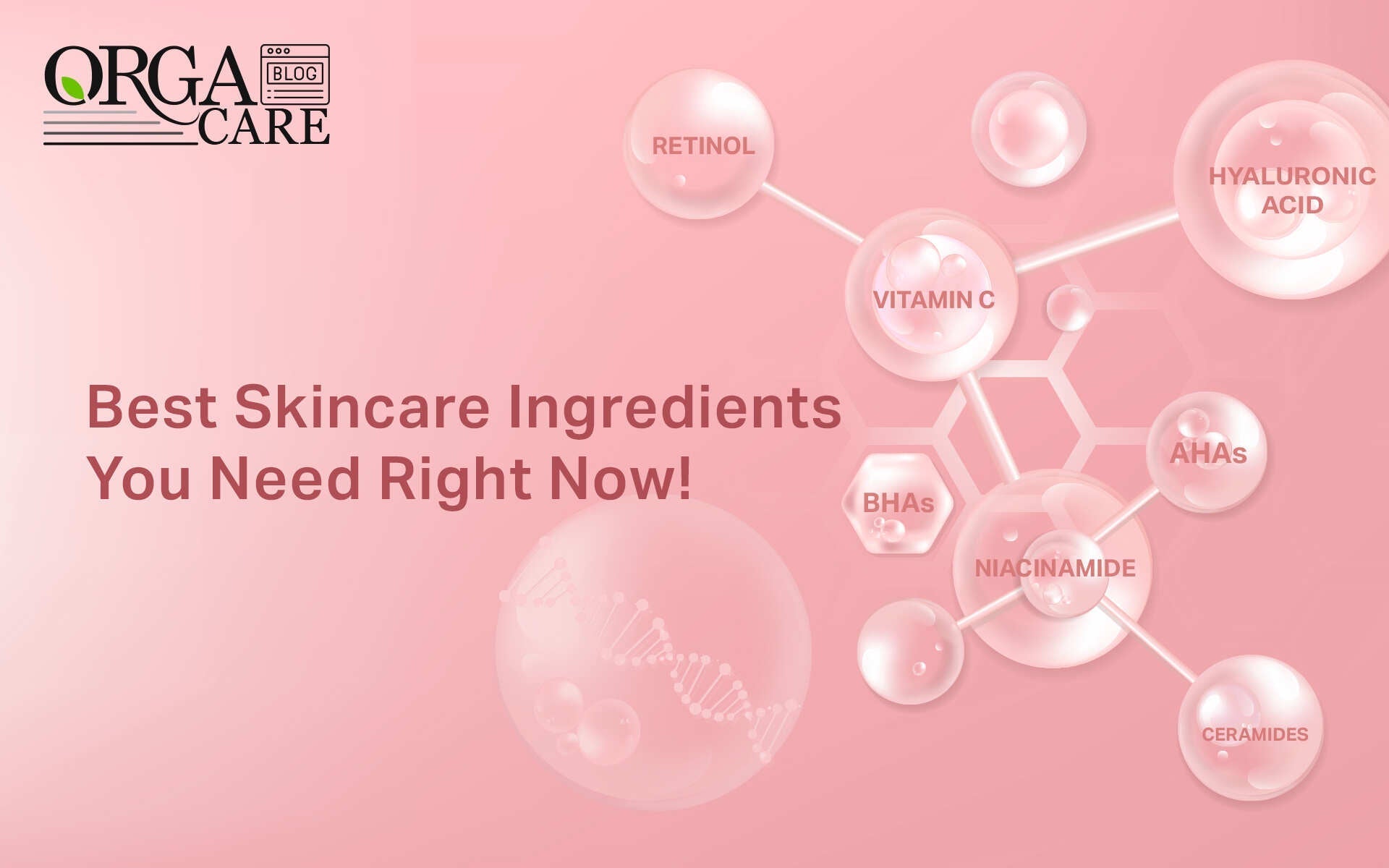Top Skincare Ingredients for Clear, Glowing, and Healthy Skin
Achieving flawless, radiant skin is a journey that requires patience, consistency, and most importantly, the right skincare ingredients. With so many products on the market, it’s easy to get overwhelmed by complex labels and scientific terms. However, understanding which ingredients truly work can help you make informed decisions and build an effective skincare routine.
Certain skincare ingredients have been praised for their ability to hydrate, brighten, and rejuvenate the skin. From hyaluronic acid for skin hydration to retinol benefits for anti-aging, choosing the right formulations can significantly enhance your skin’s health and glow. Whether you're aiming to target fine lines, boost hydration, or achieve an even skin tone, selecting the best skincare ingredients tailored to your needs is the key to success.
Why Choosing the Right Skincare Ingredients Matters?
Your skin is your body’s largest organ, and everything you apply to it gets absorbed into your system. That’s why it’s crucial to use ingredients that nourish and protect rather than harm. Many skincare products contain fillers and harsh chemicals that do more damage than good, causing breakouts, irritation, and long-term issues.
By understanding the best skincare ingredients and their benefits, you can select products that align with your skin goals. Whether you have dry, oily, sensitive, or combination skin, knowing what works best for your skin type ensures a tailored approach that delivers visible results. This knowledge helps you avoid unnecessary trials and errors, saving both time and money while ensuring a healthy glow.
Hyaluronic Acid – The Best Hydration Booster
So, the question is, what is Hyaluronic acid and why is it important for your skin?
Hyaluronic acid is a naturally occurring substance in the human body, primarily found in the skin, joints, and eyes. This powerful hydrating agent has the incredible ability to hold up to 1,000 times its weight in water, making it an exceptional ingredient for maintaining moisture. In the skin, it functions to retain water, keeping the tissues lubricated and hydrated. As we age, the natural levels of hyaluronic acid in our skin decrease, leading to drier skin, the formation of fine lines and wrinkles, and a loss of radiance. By incorporating hyaluronic acid into your skincare routine, you can help restore the moisture your skin loses over time, helping it appear plump, dewy, and youthful.
Benefits of Hyaluronic Acid for Skin
- Provides deep hydration, making the skin appear fresh, plump, and supple, promoting a healthy, glowing complexion.
- Helps to reduce the appearance of fine lines and wrinkles by plumping the skin and smoothing the texture, creating a more youthful look.
- Strengthens the skin’s natural barrier, which helps prevent moisture loss and shields the skin from environmental aggressors, maintaining hydration throughout the day.
- Works well for all skin types, including sensitive and acne-prone skin, as it is non-irritating, lightweight, and absorbs quickly without clogging pores or causing breakouts.
- Enhances the effectiveness of other skincare products by improving the skin’s ability to absorb them, making it a valuable addition to any skincare routine.
To maximize its benefits, apply a hyaluronic acid-based serum onto damp skin. This allows the product to penetrate deeper into the skin, optimizing hydration. Follow up with a moisturizer to lock in the moisture, ensuring that the skin stays hydrated for a longer period and feels soft and smooth throughout the day.
Vitamin C – The Brightening Powerhouse
Vitamin C is widely regarded as one of the most powerful antioxidants, known for its ability to protect the skin from a variety of environmental stressors, such as pollution, free radicals, and UV rays. In addition to its protective properties, Vitamin C is celebrated for its remarkable ability to brighten the skin, making it look more radiant and youthful. The benefits of Vitamin C for skin extend far beyond its ability to promote a glowing complexion. It also stimulates collagen production, helping to keep the skin firm and plump. Furthermore, it reduces the appearance of hyperpigmentation, such as dark spots and uneven skin tone, giving the skin a more even and clear appearance. By incorporating Vitamin C into your skincare routine, you can enjoy brighter, firmer, and more vibrant skin.
Why is Vitamin C Essential in Skincare?
- Fades dark spots and helps even out skin tone, leading to a clearer, more uniform complexion.
- Provides protection against sun damage and pollution, acting as a shield against harmful environmental factors that can accelerate skin aging and cause damage.
- Stimulates collagen synthesis, which helps promote firmer skin and reduces the appearance of fine lines and wrinkles, keeping your skin youthful.
- Enhances skin’s radiance by brightening the complexion, leaving it looking healthier, more vibrant, and glowing with natural luminosity.
How to use Vitamin C serum?
When using Vitamin C serum, it is best to apply it in the morning after cleansing, as it helps provide protection throughout the day. Follow with sunscreen, as Vitamin C enhances the effectiveness of sun protection. Combining Vitamin C with SPF offers an added layer of defense against harmful UV rays and helps keep the skin looking youthful and radiant.
Retinol – The Ultimate Anti-Aging Skincare Ingredients
Retinol, a derivative of Vitamin A, is widely regarded as one of the most effective anti-aging ingredients available in skincare. It is known for its ability to accelerate cell turnover, which helps the skin shed dead cells and regenerate new ones more rapidly. This process leads to the reduction of wrinkles, fine lines, and acne scars while simultaneously improving the skin's overall texture. Retinol works deep within the skin to stimulate collagen production, which helps maintain skin elasticity and firmness, making it a must-have anti-aging skincare ingredient in your routines. With consistent use, it can significantly improve the appearance of mature skin, giving it a more youthful and radiant look.
Retinol Benefits for Skin
- Stimulates collagen production, making the skin firmer and smoother, helping to maintain its elasticity and reduce sagging.
- Reduces fine lines, wrinkles, and age spots over time, providing a more youthful and rejuvenated appearance by encouraging the skin’s natural healing process.
- Unclogs pores, which helps to prevent acne breakouts and the formation of blackheads, making it beneficial for both aging and acne-prone skin.
- Improves skin texture and minimizes large pores, creating a smoother and more even skin surface for a flawless complexion.
Since retinol can be potent and may cause dryness, redness, or irritation, it's important to start with a lower concentration and gradually increase its usage to build tolerance. Apply it in the evening after cleansing, and follow with a hydrating moisturizer to keep the skin nourished and prevent excessive dryness. Retinol can also increase the skin’s sensitivity to the sun, so it is crucial to wear sunscreen during the day to protect the skin from UV damage.
Niacinamide – The All-in-One Ingredient
Niacinamide, also known as Vitamin B3, is a highly versatile and multitasking ingredient that can benefit all skin types. It is a powerhouse in skincare, helping with hydration, brightening, and strengthening the skin’s natural barrier, all while reducing redness and inflammation. Unlike other potent active ingredients, niacinamide is gentle on the skin, making it an excellent choice for those with sensitive skin or conditions like rosacea or eczema. Regular use of niacinamide helps improve the overall appearance of the skin by balancing oil production, fading dark spots, and enhancing the skin's resilience. Its calming properties also help soothe irritation, making it suitable for anyone seeking healthier, balanced skin.
Benefits of Niacinamide for Skin
- Regulates oil production, reducing acne and breakouts, helping to keep the skin clear without over-drying it.
- Minimizes the appearance of pores for a smoother complexion by promoting skin elasticity and improving skin texture.
- Reduces dark spots and hyperpigmentation, leading to a more even and brighter skin tone, creating a glowing, radiant appearance.
- Strengthens the skin barrier to protect against environmental damage, such as pollution and harsh weather, keeping the skin hydrated and protected.
Niacinamide is commonly found in a variety of skincare products, including serums, moisturizers, and toners. It pairs well with other beneficial ingredients like hyaluronic acid and Vitamin C, making it a great addition to any skincare routine. To achieve the best results, use niacinamide both in the morning and evening after cleansing. Regular use can lead to noticeable improvements in skin texture, tone, and overall health, making it a must-have for anyone looking for a simple yet effective solution for their skincare needs.
Ceramides – The Skin Barrier Protector
Ceramides are naturally occurring lipids (fats) found in the skin that play a crucial role in maintaining the skin’s moisture balance and protecting it from external aggressors like pollution, harsh weather, and bacteria. Over time, factors such as aging, environmental exposure, and harsh skincare products can deplete ceramides, leaving the skin dry, irritated, and vulnerable. Incorporating ceramides into your skincare routine can help replenish these vital lipids, strengthening the skin’s barrier, restoring moisture, and protecting against further damage.
Benefits of Ceramides for Skin
- Strengthen the skin’s protective barrier, preventing moisture loss and keeping the skin hydrated and healthy.
- Soothe and repair dry, irritated skin by restoring the skin’s natural lipid balance and enhancing its ability to retain moisture.
- Help with conditions like eczema and rosacea by improving skin resilience and calming inflammation, providing relief for sensitive or compromised skin.
- Work well with other hydrating ingredients like hyaluronic acid, boosting the effectiveness of moisturizing products.
Ceramide-rich creams and moisturizers should be used as the final step in your skincare routine, helping to lock in hydration and seal the skin’s natural moisture barrier. These products are particularly effective for dry, sensitive, and compromised skin, restoring balance and maintaining a plump, nourished complexion.
AHAs & BHAs – The Exfoliation Experts
Alpha Hydroxy Acids (AHAs) and Beta Hydroxy Acids (BHAs) are chemical exfoliants that work wonders for skin renewal by promoting the shedding of dead skin cells and revealing a fresh, glowing complexion. AHAs, such as glycolic and lactic acid, primarily exfoliate the surface of the skin, making them ideal for improving skin texture, tone, and brightness. BHAs, like salicylic acid, penetrate deeper into the pores, making them particularly effective for treating acne, excess oil, and blackheads. Together, these acids help to improve skin clarity and enhance its overall appearance.
Benefits of AHAs & BHAs for Skin
- Remove dead skin cells, revealing a fresh and radiant complexion by promoting skin cell turnover.
- Help fade acne scars and pigmentation, leading to a more even and uniform skin tone with continued use.
- Unclog pores and prevent breakouts, especially for oily and acne-prone skin, by clearing blockages and reducing excess oil.
- 2Improve skin texture, making it smoother and more refined, which helps the skin appear more youthful and polished.
AHAs are best suited for dry and mature skin, while BHAs are more effective for oily and acne-prone skin. Use exfoliating toners, serums, or peels 2-3 times a week at night to avoid over-exfoliation. Always follow with a hydrating moisturizer to keep the skin balanced and nourished after exfoliation.
Sunscreen – The Must-Have Skincare Step
No skincare routine is truly complete without sunscreen. Regardless of how many beneficial ingredients you incorporate into your regimen, unprotected sun exposure can cause serious damage to the skin, leading to premature aging, pigmentation, and an increased risk of skin cancer. Sunscreen acts as a protective barrier against harmful UV rays, which are responsible for the majority of visible skin aging. Consistently using sunscreen every day is essential to preserving the health and appearance of your skin, as well as preventing long-term damage.
Benefits of Sunscreen for Skin
- Shields the skin against harmful UV rays, which are known to cause wrinkles, sunspots, and an overall aged appearance.
- Prevents skin cancer by reducing prolonged exposure to ultraviolet (UV) radiation, which is a leading cause of skin cancer.
- Helps maintain an even skin tone by preventing the formation of dark spots and pigmentation caused by sun exposure.
- Works as a barrier against environmental stressors, such as pollution and harsh weather, which can accelerate the aging process and lead to skin damage.
Look for a broad-spectrum sunscreen with an SPF of 30 or higher to ensure protection against both UVA and UVB rays. Choose a formula that suits your skin type—lightweight and mattifying for oily skin, hydrating for dry skin, and mineral-based for sensitive skin. Apply sunscreen as the final step in your skincare routine every morning, even on cloudy days, to protect your skin from the damaging effects of the sun.
Conclusion: Choosing the Right Ingredients for Your Skin Type
The world of skincare is vast, but understanding the benefits of key ingredients can help you make informed choices. Whether you’re targeting hydration, brightening, anti-aging, or acne control, selecting the right combination of ingredients can transform your skin’s health.
From the deep hydration of hyaluronic acid to the brightening power of Vitamin C and the anti-aging magic of retinol, each ingredient plays a unique role in skincare. Prioritize ingredients that suit your skin’s needs, and remember that consistency is key. Healthy, gleaming skin isn’t just about using any products—it’s about choosing the best products for glowing skin with rich skincare ingredients that work harmoniously with your skin. For example, choosing between Hyaluronic acid vs. Retinol can depend on your skin's needs. Both offer unique benefits for hydration and anti-aging.
With the right skincare ingredients in your arsenal, you can confidently embrace healthy, glowing skin at any age.

